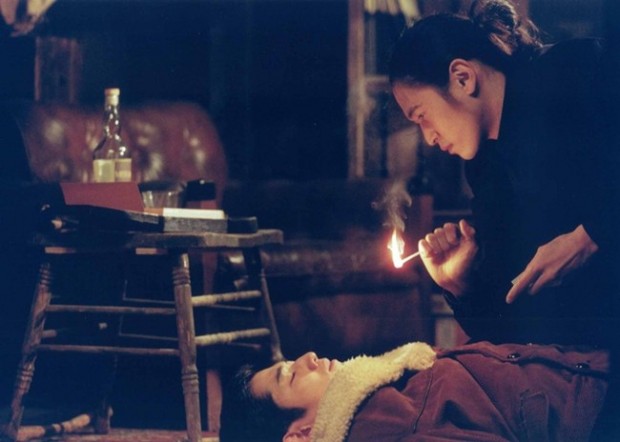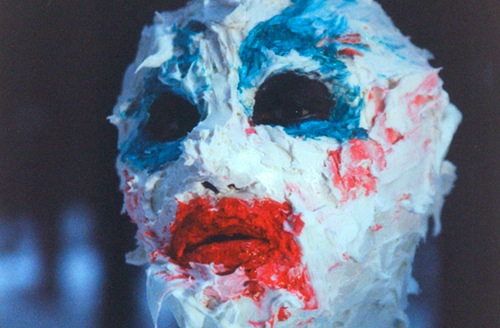Toshiaki Toyoda is known as somewhat of a rebel filmmaker in his home country of Japan, partially because he was blacklisted from the film industry after being arrested for drug use. But that didn’t stop the director from rebounding cinematically with the surreal samurai meditation Blood of Rebirth (our review and interview from NYAFF 2010) that in many ways was him flipping the bird to the industry who shunned him.
With his latest film Monster’s Club, the filmmaker delves into a parable about homegrown terrorist Ted Kaczynski (aka the Unabomber) while also self analyzing his continual personal anguish. After reading Kaczynski’s controversial manifesto, which coincidentally led to his arrest when it was published in major newspapers under the threat of more bombings, Toyoda found inspiration for the story of his new film. With his refusal to approach generic subjects and make conventional Japanese cinema, Monster’s Club continues the streak of a budding auteur coming into his own skin.
The plot could be described as a combination of a biopic of Kaczynski’s reign of terror with a surreal point of view, transplanted into Japanese culture and merging the themes of that society with the Unabomber’s distorted perspective. Ryoichi Kakiuchi (played by Japanese star Eita) lives an isolated life in snow covered mountains away from the routine and drudgery of modern day society. From this remote sanctuary, Ryoichi crafts mechanical devices of terror and mails them to corrupt executives, pushing his personal agenda at the same time. He writes down his thoughts, conveyed through voice over, and muses about the danger and toxicity of technology and brainwashing mainstream culture.
Yet the strain of being stranded alone with one’s thoughts starts to create a dangerous bubble for the terrorist’s sanity as his mind is visited by a monster (played by Japanese artist Pyuupiru) and a series of ghosts from his past who remind him of the consequences of his actions. From his brother who died mysteriously in a motorcycle accident to an older brother who committed suicide, the visitors speak to Ryoichi of sacrifice and remind him of who he used to be. But no ghostly warnings can prevent the growing rage of a terrorist with a desire to destroy. The cabin fever becomes a poetic prison for its creator, that serves as a larger meditation on the overwhelming effects and pressure modern society can have on people.
Part of what makes this film so enigmatic and enjoyable to watch is the fashion of filmmaking that turns convention on its head, making Toyoda a name to remember. Experimental in nature yet strongly tied to a narrative, there is a delicate balance of cerebral cinematic beauty, with haunting and provoking imagery evoking the style of fellow filmmaker Shinya Tsukamoto. There is also a traditional Japanese ghost story weaved into the central derailment of its protagonist, yet it never feels contrived or cliche, which can be a difficult feat for foreign filmmakers to overcome with US audiences. Like his previous film, Monster’s Club is a reflection of Toyoda’s inner psyche and demons, that makes for some fantastic and unique cinema.
Monster’s Club screens on Sunday July 15th with director Toshiaki Toyoda in attendance at Japan Society.



